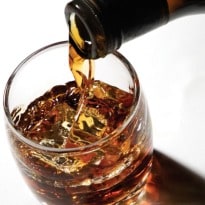Men who are less sensitive to the negative effects of alcohol drink more heavily and are more likely to become problem drinkers later in life and a part of the brain plays a crucial role in deciding this. A team of neuroscientists from University of Utah have found that a particular brain region controls sensitivity to the negative effects of drinking alcohol - a discovery that has implications for understanding the behaviour that drive alcohol addiction. To understand this, the researchers tipped the balance that reigns in addictive behaviours by inactivating in rats a brain region called the lateral habenula. When the rats were given intermittent access to a solution of 20 percent alcohol over several weeks, they escalated their alcohol drinking more rapidly and drank more heavily than control rats. "In people, escalation of intake is what eventually separates a social drinker from someone who becomes an alcoholic. These rats drink amounts that are quite substantial. Legally they would be drunk if they were driving," said Sharif Taha, a professor of neurobiology and anatomy at University of Utah.
The lateral habenula is activated by bad experiences, suggesting that without this region, the rats may drink more because they fail to learn from the negative outcomes of overindulging. "It is the same kind of learning that mediates your response in food poisoning. You taste something and then you get sick, and then of course you avoid that food in future meals," Taha explained. "The way I look at it is the rewarding effects of drinking alcohol compete with the aversive effects," co-author Andrew Haack added. "When you take the aversive effects away, which is what we did when we inactivated the lateral habenula, the rewarding effects gain more purchase and so it drives up drinking behaviour," Haack suggested in the study published in the journal PLOS ONE.







